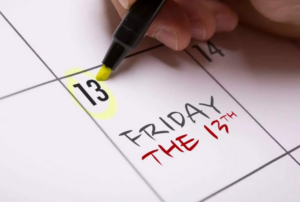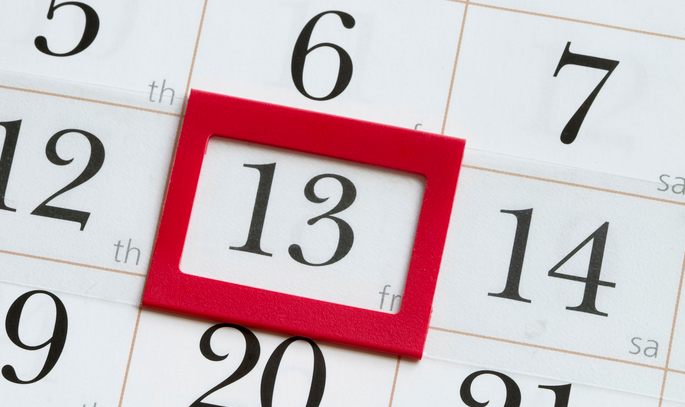Friday the 13th: Everything You Need to Know
Friday the 13th, a day often shrouded in superstition and fear, is deeply ingrained in various cultures and traditions. In this article, we’ll delve into the origins, beliefs, and intriguing facts surrounding this enigmatic day.

The Origins and History
Friday the 13th, a date marked by dread, has its roots embedded in history and folklore. The superstitions revolving around this day can be traced back to various sources, from ancient civilizations to religious beliefs. In numerology, the number 12 is often associated with completeness—12 months in a year, 12 zodiac signs, 12 gods of Olympus—while the number 13 disrupts this completeness, giving rise to unease and apprehension.
Cultural Significance
The fear of Friday the 13th, a phobia known as paraskevidekatriaphobia, is a fascinating psychological phenomenon that has indeed transcended geographical and cultural boundaries. In the Western world, including the United States and Europe, this day is often perceived as inauspicious, a harbinger of bad luck. The deeply entrenched superstitions associate Friday the 13th with a series of unfortunate events. It’s not uncommon to witness individuals exercising caution on this day, avoiding significant activities such as traveling, weddings, or making major life decisions. The fear is so palpable that some people might even alter their daily routines, preferring to stay within the safety of their homes.
Conversely, in certain Eastern cultures, the number 13 is not inherently perceived as ominous, and Fridays do not carry the same foreboding. In fact, in some cultures, Fridays are considered fortuitous and are associated with positive events or beliefs. This stark difference in perception showcases the diverse array of beliefs that humanity holds, each deeply influenced by cultural, historical, and societal contexts.
The Unusual Fear: Triskaidekaphobia
Triskaidekaphobia, an amalgamation of the Greek words ‘tris’ (meaning three), ‘kai’ (meaning and), ‘deka’ (meaning ten), and ‘phobia’ (meaning fear), is an intriguing fear deeply rooted in superstition. The number 13, often dubbed as unlucky, is the focal point of this phobia. Those afflicted by triskaidekaphobia harbor an intense dread of anything associated with the number, leading to a series of meticulous measures to avoid it, especially when it coincides with the day, Friday.
The fear of the number 13 is so pervasive that it infiltrates various aspects of daily life. Architecturally, buildings sometimes skip labeling the 13th floor altogether, jumping from 12 to 14. This practice is so common that it is no longer unusual to enter an elevator and notice the absence of the number 13 on the buttons. Similarly, in the layout of airplane seating, some airlines omit the 13th row, jumping from 12 to 14. This is a precautionary measure to assuage the fears of those who may be uneasy about sitting in a seat associated with the dreaded number.
Historical Events on Friday the 13th
Interestingly, history has witnessed significant events occurring on Friday the 13th, debunking the prevalent superstitions. For instance, on Friday the 13th of October 1307, King Philip IV of France ordered the arrest of the Knights Templar, leading to their persecution. In more recent times, various space missions have been launched successfully on this supposedly ill-fated day.
Pop Culture and Friday the 13th
The mystique surrounding Friday the 13th has significantly influenced popular culture. It’s a recurring theme in movies, books, and even music. The Friday the 13th film franchise, featuring the notorious character Jason Voorhees, has become a cult classic in the horror genre. This amplifies the day’s association with fear and dread.
Dispelling the Superstitions
While the fear of Friday the 13th is deeply ingrained in society, some view it as mere superstition. Skeptics consider it a psychological phenomenon and argue that attributing misfortune to a specific date is irrational. They advocate for overcoming such beliefs through understanding and rationality.
Conclusion
Friday the 13th, a day steeped in superstition and fear, has a rich history that intertwines with culture, beliefs, and human psychology. Whether one fears it or dismisses it as mere superstition, the enigmatic aura of this day persists, leaving an indelible mark on our collective consciousness. Understanding its origins and dispelling unfounded fears can help us appreciate the fascinating tapestry of human beliefs and customs.

